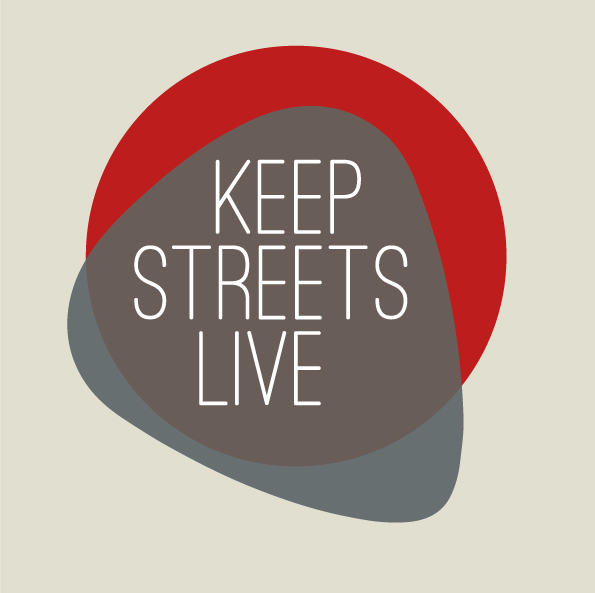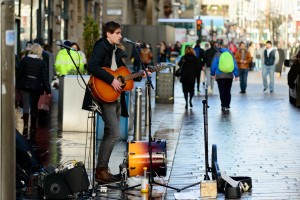Official KSLC response to Havering Borough Council’s proposed PSPO in Romford town centre

Havering Borough Council are conducting an online consultation into their plans to introduce a Public Space Protection Order in Romford town centre which would criminalise busking and make it easier to target vulnerable people for ‘seeking alms’. The Keep Streets Live Campaign is asking Havering to rethink their proposals and this is our official response to their plans.
Please take a moment to fill in the online consultation and, if you agree with our criticisms, join us in asking them to think again.
You should feel free to use some of the points we have made below as a guide when making your response. The more people that get in touch with Havering Council, the greater our chance of asking them to rethink their proposals is. Here is the link:
https://www.surveymonkey.co.uk/r/2Y53GJ7
Keep Streets Live Campaign response to Havering Borough Council PSPO consultation
I am the founder and the director of the Keep Streets Live Campaign, a not for profit organisation which exists to advocate for public spaces which are open to informal offerings of art and music and other community uses. We started the online petition, so far signed by over 1500 people, asking Havering Borough Council to rethink its PSPO proposals:
https://www.change.org/p/havering-borough-council-don-t-ban-romford-s-buskers-don-t-criminalise-the-destitute?recruiter=22155823&utm_source=share_petition&utm_medium=facebook&utm_campaign=share_page&utm_term=mob-xs-notification-custom_msg
We are have specific concerns about the scope of the proposed PSPO, particularly as it relates to busking and also ‘begging and the seeking of alms’. Our petition specifically asks that busking and ‘begging and the seeking of alms’ be removed from the draft PSPO though we have concerns about the overall scope of the PSPO.
We share with Liberty concerns about the lack of supporting evidence used to support the proposed introduction of this PSPO which they have made publicly available in this letter:
https://www.liberty-human-rights.org.uk/sites/default/files/Letter%20to%20Havering%20Council%20re%20PSPO%20consultation%2005.04.17.pdf
For the purposes of this online consultation we will be responding to specific parts of the proposed PSPO:
‘Busking only within areas designated by Havering Council’
The police and council already have ample powers to address issues of nuisance, obstruction or antisocial behaviour as they relate to busking making this clause unnecessary. The problem with this clause is that it would make it a criminal offence to busk outside designated areas, even if the busking was not causing any nuisance or obstruction. Busking in public spaces is a long standing British cultural tradition, and, provided that no obstruction is being caused on the highway and no nuisance is being caused, is lawful. The Live Music Act 2012 affirms that live music can be played in public places between 8am and 11pm but this proposal would make it a criminal offence to play music except for specific areas in Romford. This is a disproportionate and ‘catch-all’ attempt to address the issues that can sometimes arise from busking. It would also mean that the police and council would be diverting resources to prosecuting buskers for standing in the wrong place, even if they weren’t causing any issues. It would also mean that busking performances would concentrate in specific designated areas which could lead to an increase in complaints from those areas. We are asking Havering Borough Council to adopt a best practise guide for busking such as the one agreed between the local authority, Musician’s Union, Keep Streets Live Campaign and Equity in Liverpool, York, Birmingham, Chester, Canterbury, Worcester and elsewhere (http://keepstreetslive.com/uncategorized/2014/09/best-practice-busking-guide) to the oversight of busking in Romford. The principle of this guidance should be avoiding creating blanket, catch-all offences but concentrating resources on enforcement against those performers who are causing a genuine nuisance. The council and the police have the powers to ban specific individuals and performers from pitches where they have been shown to cause a nuisance. They should target problematic individuals rather than all buskers because otherwise they will be criminalising people and activities that are not causing any harm.
‘No busking with amplified equipment’
Clearly this clause attempts to address the issue of noise nuisance as it relates to busking by creating a catch-all criminal offence of using amplified equipment. Once again, the problem with this clause is that it criminalises all uses of amplification, even those uses which are not causing any noise nuisance without addressing the potential nuisance of unamplified instruments like drums, plastic pots, trumpets, bagpipes or saxophones etc which all have the potential to cause nuisance. Many street musicians use a battery powered amp because they are playing quieter instruments such as guitars and need to be heard just above the ambient street noise for their performances to be effective. The use of microphones enables people to sing or speak more quietly and safeguards singers against vocal damage or trauma. Criminalising the use of amplifiers will mean that many of the most accomplished or professional performers will no longer be able to perform in Romford which will have the effect of making Romford a ‘no-go’ area for buskers. Additionally the proposed blanket ban on amplification risks the criminalisation of residents who use microphones or loudspeakers as part of peaceful protests in the Romford area which is a potential interference of the right to freedom of expression under Article 11 of the European Convention on Human Rights.
Once We ask Havering Borough Council to drop this clause and to adopt a Best Practise Guide approach to the oversight of busking in Romford with the Musician’s Union, Equity and Keep Streets Live Campaign along the lines already agreed in cities such as Liverpool, Birmingham, York and elsewhere:
http://keepstreetslive.com/uncategorized/2014/09/best-practice-busking-guide
Rather than enforcing a general blanket ban on amplification, the police and local authority could target specific performers who have been shown to cause a nuisance. The police and local authority already have the powers needed to confiscate equipment from people causing a nuisance and to ban specific individuals from using amplified equipment. By targeting enforcement against those individuals who are generating complaints the local authority will be able to improve the quality of busking in Romford and address the issue of noise nuisance without criminalising those performers who use amplification considerately and appropriately. We ask that Havering remove this clause from the PSPO
‘No begging or seeking of alms’
Including begging in the PSPO will impact the poorest and most vulnerable members of society in a disproportionate and manifestly unjust way. The vast majority of people who beg are highly vulnerable, many suffering from complex needs, mental health and addiction issues and are often destitute and are reduced to begging in order to obtain food and shelter. The current proposal would mean that a person sat down, without causing any issues to any other person, could face a criminal record and fine of up to £1000. It is counterproductive to use public resources to impose punitive fines upon people who are very unlikely to be able to pay them and could face further marginalisation and destitution through their interaction with the court system.
The use of the phrase ‘seeking of alms’ is vague and ambiguous as well as being antiquated. It risks creating a new criminal offence without a clear understanding of what that offence entails. For example, does asking someone for food or a hot drink constitute ‘seeking of alms’? If so, are Havering Borough Council proposing to make it a criminal offence for destitute people to seek food and drink?
Begging is already illegal under the 1824 Vagrancy Act which gives the police ample powers to seek to prosecute persons for begging if it was deemed to be in the public interest. Instead of giving an enormous range of new delegated powers to council officials which could see a large number of fixed penalty notices given to people with no ability to pay them and a resultant rise in costly magistrate’s court hearings and the mixing up of vulnerable people in the criminal justice system, the council and the police should focus purely on the small minority of people who combine begging with genuinely aggressive and intimidating behaviour and use existing legislation to target those individuals rather than creating a new criminal offence. Oxford City Council amended their PSPO proposal to target ‘aggressive begging’. Whilst this is still problematic it has the advantage of targeting a specific behaviour with the potential to cause harm to others in the form of intimidation or harassment and is less open to misuse. We ask that Havering Borough Council remove the clause as it relates to begging and seeking of alms.
‘No unlicensed street trading or charity solicitation (chugging)’
Rather than a blanket ban on ‘charity solicitation’ the council should adopt a best practise guide which outlines expected behaviour from those working on behalf of charities and target enforcement against those individuals or groups that depart from mutually agreed standards. This clause, as it stands, could criminalise people who are acting in a responsible and considerate way which is problematic.
‘No consumption of alcohol outside of a licenced premises or designated drinking area’
This proposal could be amended to make it an offence not to surrender an alcoholic beverage when asked to by a police officer. In this way the proposal would address the issue of street drinking without criminalising vulnerable people who might be suffering from mental health/addiction problems. The current wording of the proposal means that anybody with an alcoholic drink in a public place in Romford would be committing a criminal offence which could have a damaging impact on vulnerable people.




